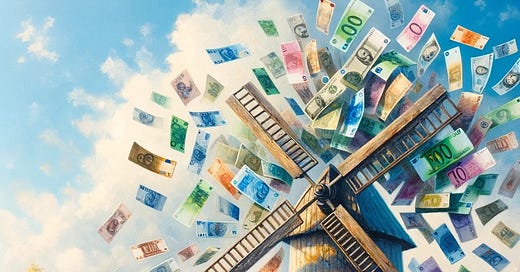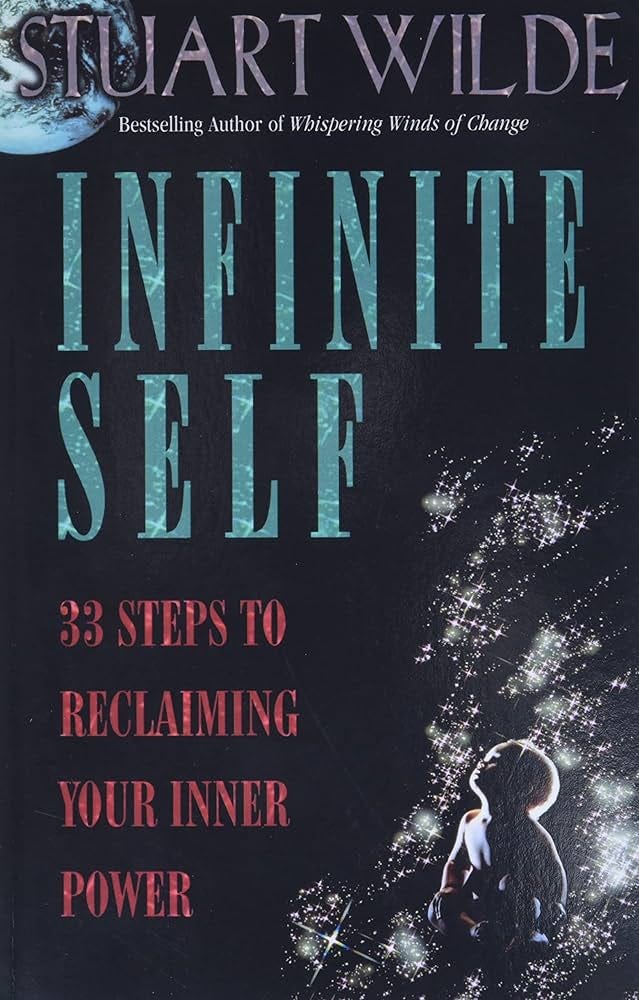The belief that money is a form of energy is metaphysically rooted in the idea that money facilitates the exchange of goods and services, and therefore, it has a dynamic, flowing quality similar to energy.
Here's an elaboration:
Medium of Exchange: Money serves as a medium of exchange, enabling people to trade their time, skills, and products efficiently. In this sense, it can be seen as a facilitator of energy transfer between individuals and businesses.
Flow and Circulation: Money is in constant motion, circulating through the economy. When it is spent or invested, it can generate returns or create economic activity, akin to how energy flows and transforms in physical systems.
Value Transfer: Just as energy can be transformed from one form to another, money can change from one state to another through investments, savings, or spending. When wisely managed, it can grow, much like energy can be converted into different forms of work or potential.
Manifestation of Effort: Money often represents the value of work or effort put into creating goods or providing services. In this way, it can be associated with the energy expended to produce those goods or services.
Abundance Mindset: Some people believe that thinking of money as energy encourages an abundance mindset. Just as energy is not limited but can be harnessed and utilized, this perspective suggests that there is an abundance of opportunities to create and attract wealth.
The primary message of the book I’m reading "Infinite Self: 33 Steps To Reclaiming Your Inner Power" by Stuart Wilde is that individuals possess infinite inner power and potential to create positive change in their lives.
The book encourages readers to tap into their inner selves and embrace their true nature to overcome limitations and create a fulfilling life.
Regarding money, the book suggests that readers can create a change in their consciousness around money by shifting their mindset from scarcity and lack to abundance and prosperity.
It offers practical steps and insights on how to change one's relationship with money, understand its energetic nature, and attract financial abundance.
Says Wilde in his book:
“Poverty is restriction, and, as such, it is the greatest injustice you can perpetrate upon yourself.”
In explaining the ego’s propensity to mess with the flow of wealth, Wilde offered this:
“It is almost as if, in the anguish of uncertainty, erratic cash flow, and limited resources, the ego perpetuates its control over the individual by creating a constant reminder to that person of the potential disaster that is but ’round the next corner.”
He then offered this truth-bomb:
“Without income you have no freedom, and whereas it might be fun to lounge around for a little while, eventually you have to reconcile your ineptitude and subservience and tell yourself a pack of lies in order to sustain any self-worth or image.”
“The trick is to see your life in terms of energy. The work you do or the investments you make are a part of that overall energy.” — Stuart Wilde
Thus, the money you receive from those efforts is also energy. By dealing with abundance in energy terms rather than specific dollar values, you open yourself up to receive infinite amounts, for there is no limit to energy.”
The book emphasizes the importance of self-belief, self-worth, and aligning one's actions with their desires to manifest financial abundance. It encourages readers to release limiting beliefs and fears around money, embrace gratitude, practice visualization, and take inspired action towards their financial goals.
Says Wilde:
“Abundance will never be a factor of how much money one has. Rather it is always a factor of how one feels about what money one does have.”
I can’t recommend Wilde’s book enough. For by following the principles and techniques outlined in the book, we as readers can transform our consciousness around money, develop a positive and abundant mindset, and ultimately create a more prosperous and fulfilling financial reality for ourselves.






